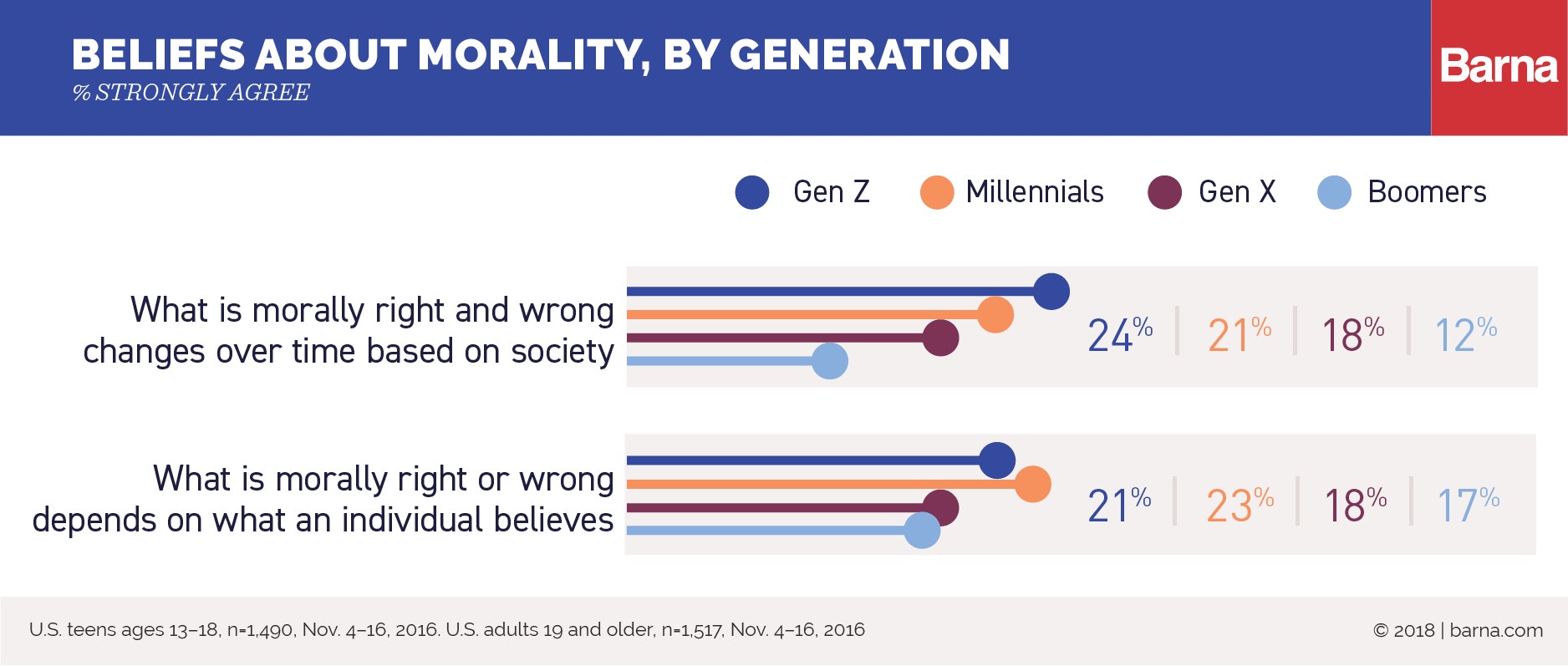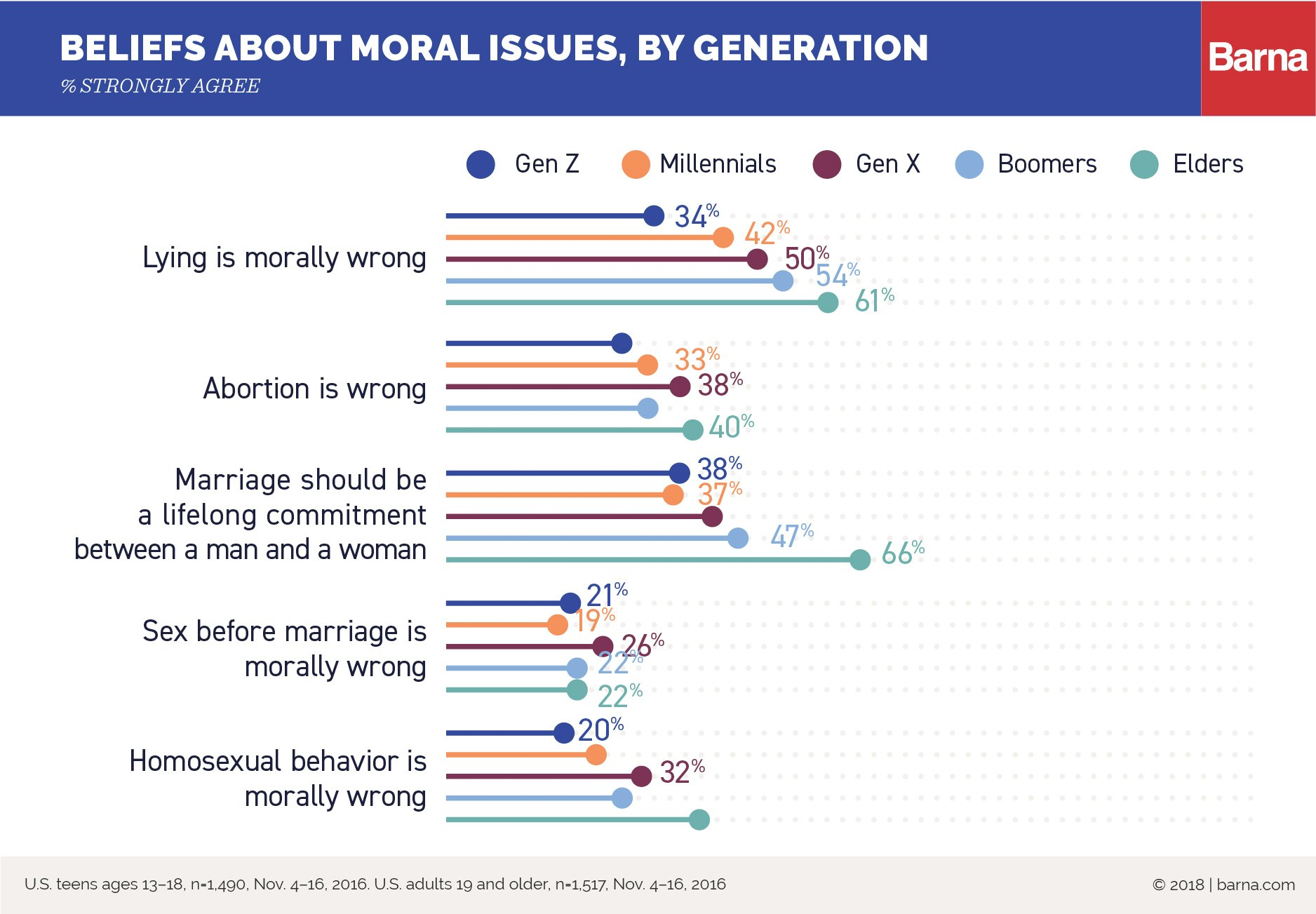We live in an increasingly “post-truth” political climate. But even before fake news and alternative facts, few Americans were in agreement about, well, almost anything. Over time, consensus on key moral principles has waned, and the younger generations are now inheriting this new moral landscape. In addition to a growing religious apathy and a singular focus on success, another prominent trait of Gen Z is a more relativistic worldview. Though still in a formative stage of life, the leading edge of Gen Z, along with Millennials, appears to hold notably different views about morality than other generations. In a major study in partnership with Impact 360 Institute, Barna’s Gen Z report examines beliefs about morality among the next, next generation.
Morality Can Be a Grey Area to Gen Z
Looking at some basic principles, there is a curious generational shift in the moral compass of Americans. With some awareness that teens’ views may still be quite pliable, we’ll focus on the respondents who indicate the highest level of agreement with these statements in order to show those presently most committed to these beliefs. At this extreme end, one-quarter of Gen Z (24 percent) strongly agrees that what is morally right and wrong changes over time based on society. There is a wide generational divide on this point: Twice as many Gen Z than Boomers (12 percent) believe this. The centrality of the self as moral arbiter is also higher among the younger generations—21 percent of Gen Z and 23 percent of Millennials believe each individual is his or her own moral authority—though Gen X (18 percent) and Boomers (17 percent) aren’t too far behind on this one. As mentioned, these are only the proportions who strongly agree, so this is perhaps just a hint of a broader public acceptance that morality can be fluid. Teens in Barna focus groups elaborated on their perspective. One participant said, “Society changes, and what’s good or bad changes as well. It is all relative to what’s happening in the world.”
Where Gen Z Stands on Hotly Debated Issues
This study also asked teens about where they stand on some commonly debated ethical and legal issues. For example, though Gen Z are the most progressive on abortion, almost 3 in 10 believe it is wrong (29 percent), more than most other issues included in the survey.
About 4 in 10 Gen Z feel a strong conviction that marriage ought to be a lifelong commitment between a man and woman (38 percent, on par with Millennials at 37%). Despite having firm feelings about fidelity, Gen Z is more lenient than older adults on this topic, evidenced by the gap between them and Boomers (47 percent) and Elders (66 percent). There are similar divergences when it comes to issues of sexuality, on which Gen Z tends to be least conservative. For instance, only one-fifth (21 percent) believes sex before marriage is wrong—though they are mostly on par with other generations, with Gen X being the most conservative (26 percent). They are least likely to take issue with same-sex sexual activity; only one-fifth (20 percent) is strongly opposed to it. The opinions on this among all age groups are somewhat mixed, but disapproval of homosexuality generally increases by generation.
Read the full results at Barna.com.



